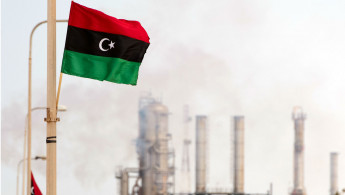Libya opens tap on oil out of the country
Libya is preparing for its first oil exports in months after war, political infighting and jihadi attacks ceased outflow of the country's most important resource.
National Oil Company said it is ready to ship out crude again after instability in the country caused oil exports to halt.
"Now we will begin working... to restart exports from the ports that were closed and from the fields that supply them," the NOC said in a statement Sunday.
Guards at Libya's oil fields recently said they would reopen two major export terminals after an agreement with the Tripoli-based Government of National Unity (GNA).
Ras Lanuf and al-Sidra terminals - with respective capacities of 200,000 barrels per day and 500,000 bpd - have been closed since January after storage tanks were set on fire during attacks by the Islamic State group.
The NOC said the GNA had decided to release funds to allow the oil company "to boost production by over 900,000 bpd by the end of the year 2016".
Libya relies almost entirely on oil for its income and is managed by the NOC which is split into two rival branches.
The main branch is in the capital and allied to the GNA, but its rival in the east is close to a parallel executive that has the confidence of parliament which has so far refused to cede power to the internationally-recognised Tripoli government.
Nagi al-Maghrabi of the eastern-based NOC told AFP that he rejected the deal between the GNA and the oil installation guards, however.
"We will not accept that oil is exported under these conditions... as there will be no guarantees of the fair distribution of income, or assurances that the funds will not fall into the hands of militias," he said.
Oil is Libya's main natural resource with reserves estimated at 48 billion barrels, the largest in Africa.





 Follow the Middle East's top stories in English at The New Arab on Google News
Follow the Middle East's top stories in English at The New Arab on Google News


